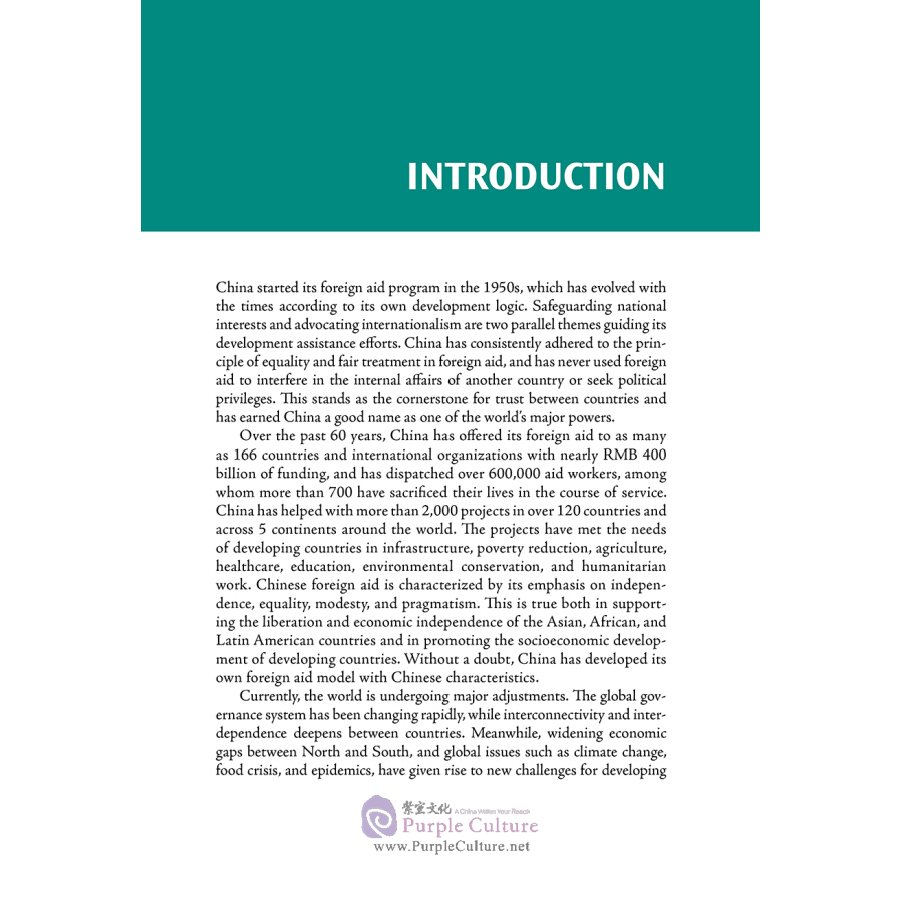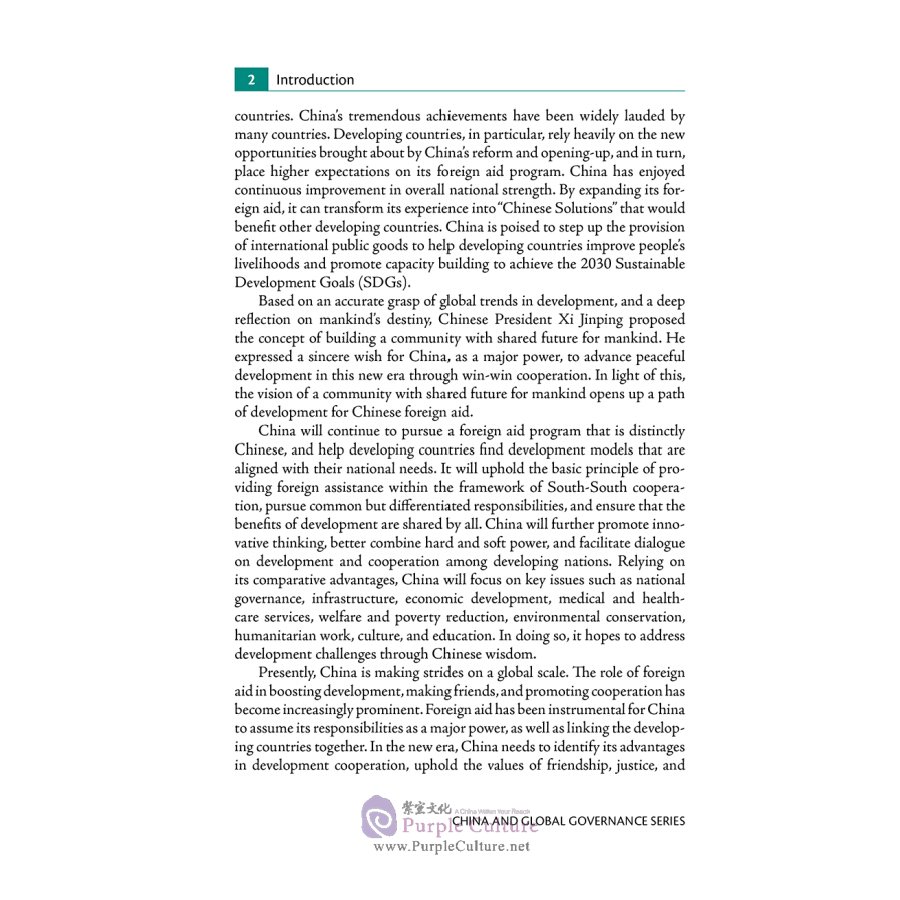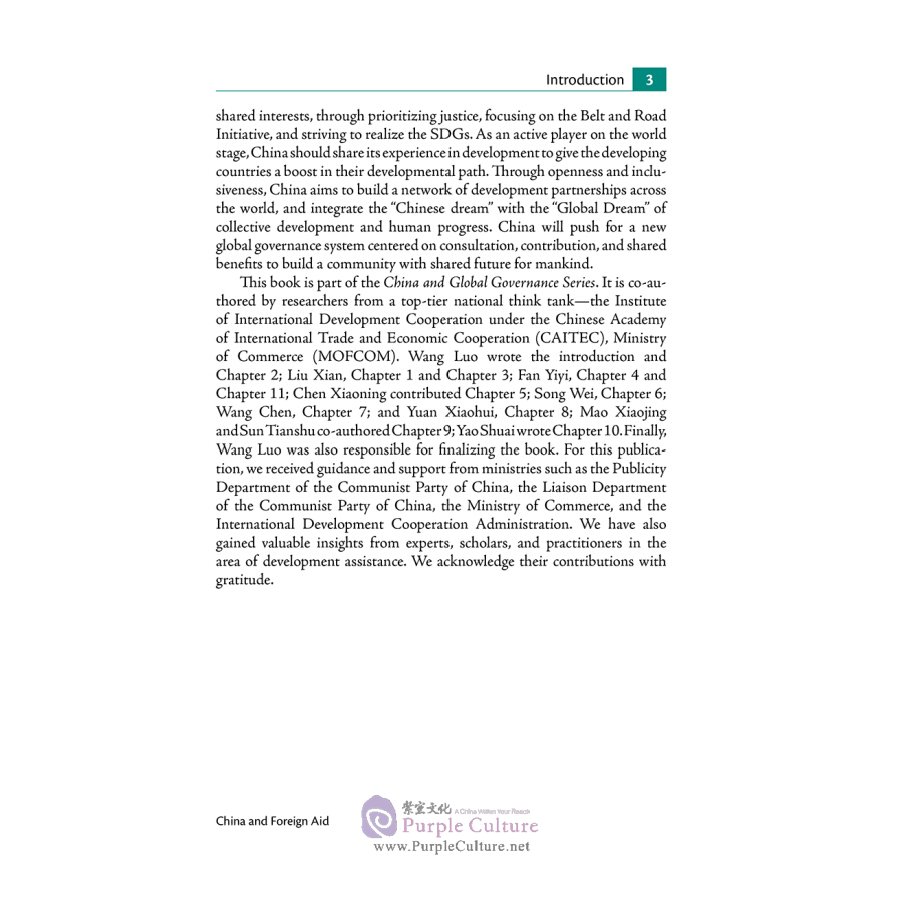Sample Pages Preview


 Preface
Preface
China started its foreign aid program in the 1950s, which has evolved with the times according to its own development logic. Safeguarding national interests and advocating internationalism are two parallel themes guiding its development assistance efforts. China has consistently adhered to the principle of equality and fair treatment in foreign aid, and has never used foreign aid to interfere in the internal affairs of another country or seek political privileges. This stands as the cornerstone for trust between countries and has earned China a good name as one of the world’s major powers.
Over the past 60 years, China has offered its foreign aid to as many as 166 countries and international organizations with nearly RMB 400 billion of funding, and has dispatched over 600,000 aid workers, among whom more than 700 have sacrificed their lives in the course of service. China has helped with more than 2,000 projects in over 120 countries and across 5 continents around the world. The projects have met the needs of developing countries in infrastructure, poverty reduction, agriculture, healthcare, education, environmental conservation, and humanitarian work. Chinese foreign aid is characterized by its emphasis on independence, equality, modesty, and pragmatism. This is true both in supporting the liberation and economic independence of the Asian, African, and Latin American countries and in promoting the socioeconomic development of developing countries. Without a doubt, China has developed its own foreign aid model with Chinese characteristics.


